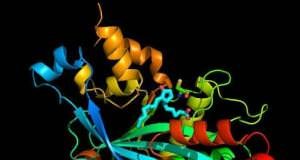Eating Flavonoids Protects Men Against Parkinson’s Disease, Study Finds
Men who eat flavonoid-rich foods such as berries, tea, apples and red wine significantly reduce their risk of developing Parkinson's disease, according to new research by Harvard University and the University of East Anglia. Published April 4 in the journal Neurology®, the findings add to the growing body of evidence that regular consumption of some flavonoids can have a marked effect on human health.
Caffeine And Exercise May Be Protective Against Skin Cancer Caused By...
The combined effects of exercise plus caffeine consumption may be able to ward off skin cancer and also prevent inflammation related to other obesity-linked cancers. "We found that this combination treatment can decrease sunlight-caused skin cancer formation in a mouse model," said Yao-Ping Lu, Ph.D., associate research professor of chemical biology and director of skin cancer prevention at the Rutgers Ernest Mario School of Pharmacy in Piscataway, N.J.
Popcorn: The Snack With Even Higher Antioxidants Levels Than Fruits And...
Popcorn's reputation as a snack food that's actually good for health popped up a few notches as scientists recently reported that it contains more of the healthful antioxidant substances called "polyphenols" than fruits and vegetables. They spoke at the 243rd National Meeting & Exposition of the American Chemical Society (ACS), in San Diego on March 25.
Curcumin May Slow Tumour Growth: Study
Intake of curcumin at ‘physiologically attainable’ doses could help to slow the development of prostate cancers by jamming receptors linked to cancer tumour growth, say researchers.
Societal Control Of Sugar Essential To Ease Public Health Burden, Experts...
Sugar should be controlled like alcohol and tobacco to protect public health, according to a team of UCSF researchers, who maintain in a new report that sugar is fueling a global obesity pandemic, contributing to 35 million deaths annually worldwide from non-communicable diseases like diabetes, heart disease and cancer.
Possible Cure For Leukemia Found In Fish Oil
A compound produced from fish oil that appears to target leukemia stem cells could lead to a cure for the disease, according to Penn State researchers. The compound -- delta-12-protaglandin J3, or D12-PGJ3 -- targeted and killed the stem cells of chronic myelogenous leukemia, or CML, in mice, said Sandeep Prabhu, associate professor of immunology and molecular toxicology in the Department of Veterinary and Medical Sciences.
Diabetes Drug Shows Promise In Reducing Risk of Cancer, Study Suggests
An inexpensive drug that treats Type-2 diabetes has been shown to prevent a number of natural and human-made chemicals from stimulating the growth of breast cancer cells, according to a newly published study by a Michigan State University researcher.
Regular Aspirin Intake Halves Cancer Risk, Study Finds
Scientists including those from Queen's University have discovered that taking regular aspirin halves the risk of developing hereditary cancers. Hereditary cancers are those which develop as a result of a gene fault inherited from a parent. Bowel and womb cancers are the most common forms of hereditary cancers.
Possible Link Between Two Type 2 Diabetes Drugs And Pancreatic Cancer,...
Two newer drugs used to treat Type 2 diabetes could be linked to a significantly increased risk of developing pancreatitis and pancreatic cancer, and one could also be linked to an increased risk of thyroid cancer, according to a new UCLA study.
Caffeine Lowers Risk Of Skin Cancer: Coffee-Based Sunscreen Might Work Best
There might be a time when instead of just drinking that morning cup of coffee you lather it on your skin as a way of preventing harmful sun damage or skin cancer. A new Rutgers study strengthens the theory that caffeine guards against certain skin cancers at the molecular level by inhibiting a protein enzyme in the skin, known as ATR.
At Last, A Reason Why Stress Causes DNA Damage
For years, researchers have published papers that associate chronic stress with chromosomal damage. Now researchers at Duke University Medical Center have discovered a mechanism that helps to explain the stress response in terms of DNA damage.
Genetically Modified ‘Serial Killer’ T-Cells Obliterate Tumors in Leukemia Patients
In a cancer treatment breakthrough 20 years in the making, researchers from the University of Pennsylvania's Abramson Cancer Center and Perelman School of Medicine...














